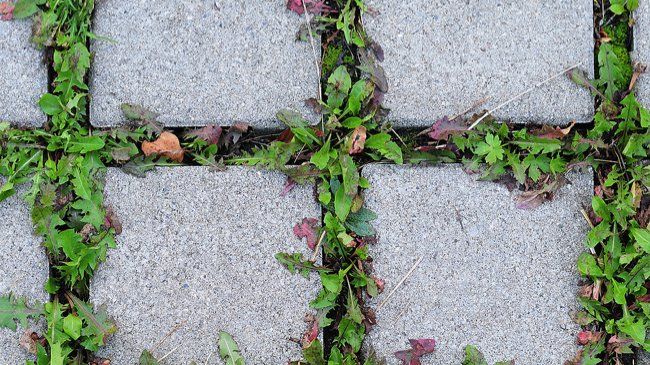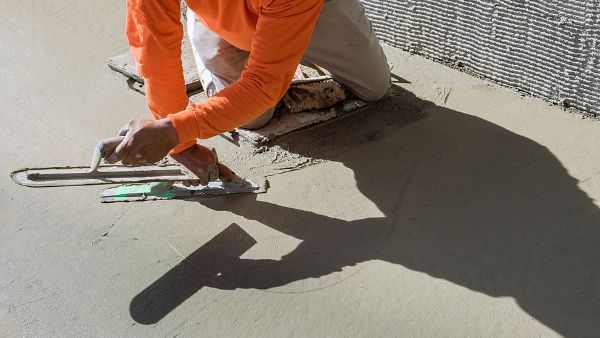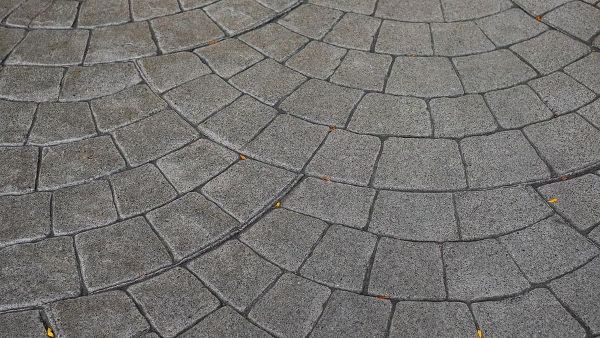
How To Keep Weeds From Growing Between Concrete Pavers
Steps To Keep Weeds Out From Between Concrete Pavers
Concrete pavers are very popular for outdoor walkways and patios. They can mimic the appearance of more expensive materials and come in many different shapes and colors. With their interlocking designs, they are easy enough for laypeople to work with, or you can hire a contractor in Santa Rosa who works with concrete specifically for a professional installation.
One pitfall of concrete pavers, however, is that weeds can start growing up between the cracks, ruining the uniform look that you are trying to achieve. Fortunately, this is a relatively easy problem to solve with the help of a little-known substance called polymeric sand.
What Is Polymeric Sand, and How Does It Help Against Weeds?
Polymeric sand works as a bonding agent that, when exposed to water, locks pavers in place and creates an impenetrable barrier between the two that not even the hardiest weeds can get past. With the correct application of polymeric sand, the concrete elements are permanently bound together. It not only helps against weeds but also infestations by ants.
Polymeric sand may look like regular sand, but its grains are very fine. It has silica and other additives mixed in to cause the fine particles to lock together permanently. The additives are inactive until they come in contact with water, then they activate to create the bond. Polymeric sand has other names, such as hardscape sand, jointing sand, and paver sand.
You may think that it would be difficult to work with polymeric sand, but it is not. It is a relatively simple matter to fill the joints between your pavers with the sand. First, you take a cup and use it to scoop up the sand and pour it into the joints. Use a broom to sweep the sand down into the cracks. If there is any excess on the pavers themselves, use a leaf blower to remove it. Be sure you complete this step before misting the sand with water. Otherwise, the excess sand will stain the pavers, and because water activates the binding agents, you will never be able to remove it.
Once you have confirmed that the sand is only between the paver joints, the next step is to mist the sand between the pavers to activate the bonding agents. Using a garden sprayer, do small sections at a time, and do not wait more than three minutes between applications. Each section requires three to four applications to produce the strongest bond. Avoid spraying so much water that you make puddles. Once you have finished this step and adequately misted the joints, wait 24 hours before walking on the pavers again.
What Do You Have To Do Before Applying the Polymeric Sand?
You can save a step by applying the sand at the same time the pavers are installed. However, if the pavers are already installed and you notice weeds growing up in between them, you can still apply the polymeric sand retroactively. Before you do so, however, you have to kill and remove the weeds first.
You do not need fancy herbicides to kill the weeds between your pavers. White vinegar is an effective weed killer because of its acidic content. It is also non-toxic and easy to use; most people already have some in their kitchens. Put the vinegar into a spray bottle with a teaspoon of dish soap, then spray it on the weeds. The dish soap helps the vinegar stick to the weeds so that it works more effectively. The weeds absorb the vinegar better if you wait for the prime hours of sunshine and heat before spraying them.
Once the vinegar is on the weeds, they are pretty much done for. You can pull them up right away, or you can wait until they die off completely. It depends on the time frame in which you want to complete the project. It may be difficult to get a good grip on the weeds to pull them out completely using your hands alone. You may need a tool that is narrow enough to fit into the cracks between the pavers to dig them out, such as a flathead screwdriver. The most important thing is to make sure the weeds are removed completely before applying the polymeric sand.
One of the benefits of hiring a contractor in Santa Rosa to install your concrete pavers in the first place is that the polymeric sand can be applied as part of the professional job. For more information about our concrete services,
contact us at RTS Construction.
Share Your Comments
Articles You May Also Like
Get Started On Your Concrete Project Today!
From concrete foundations to backyard patios, we do it all!
RTS Construction proudly serves: Sonoma County • Marin County • Sonoma • Santa Rosa • Rohnert Park • Petaluma • Windsor • Napa • Sebastopol and surrounding areas.




